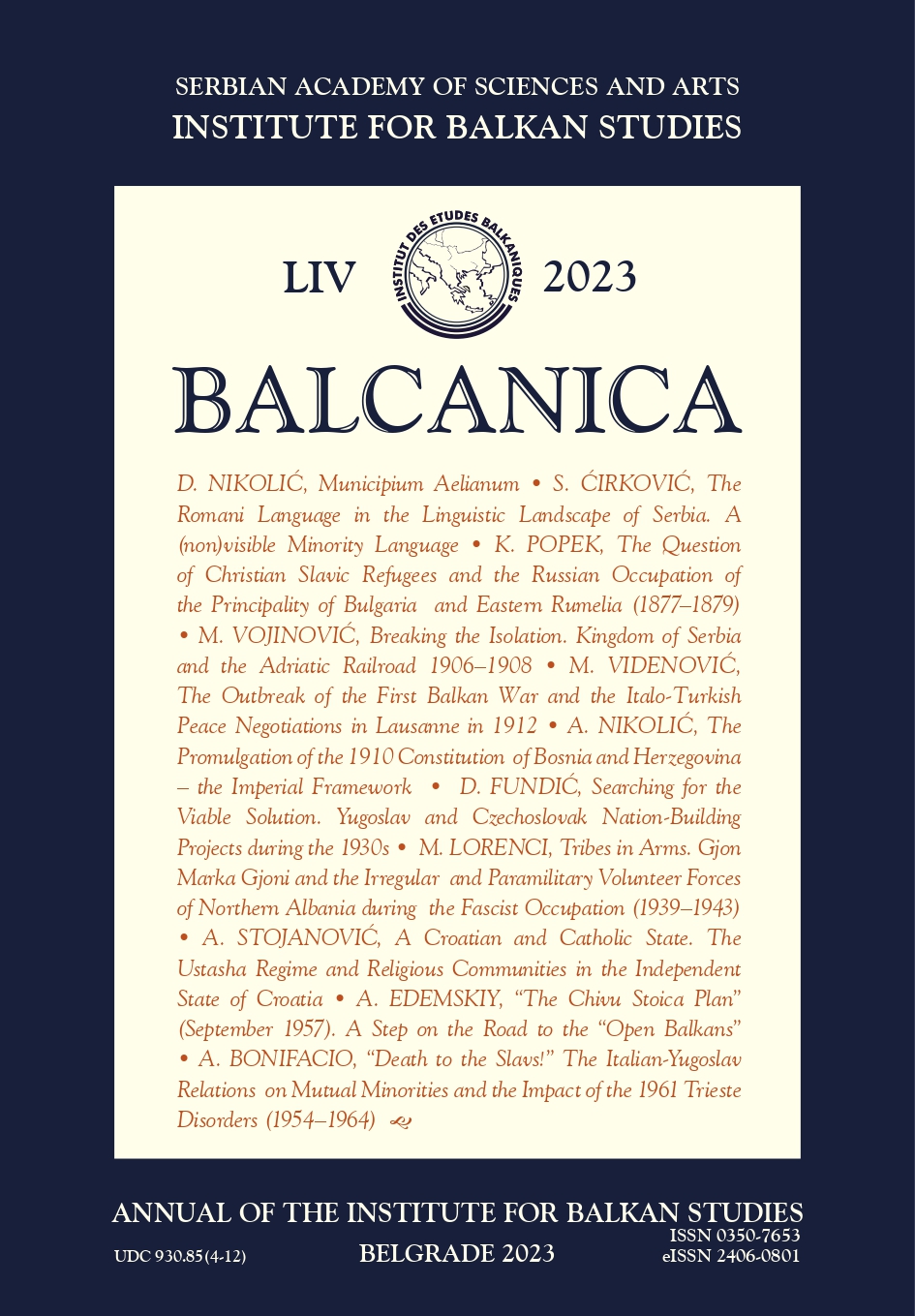Searching for a Viable Solution. Yugoslav and Czechoslovak Nation-Building Projects in the 1930s

Published 30.12.2023
Keywords
- Yugoslavism,
- Czechoslavism,
- interwar Yugoslavia,
- interwar Czechoslovakia,
- nation-building
- 1930s ...More
How to Cite
Copyright (c) 2023 Balcanica - Annual of the Institute for Balkan Studies

This work is licensed under a Creative Commons Attribution-NonCommercial-NoDerivatives 4.0 International License.
Abstract
This paper examines the policies used by the Yugoslav central government in the Yugoslav nation-building project of the 1930s and draws comparisons with the similar experience of Czechoslovakia. It explores the centralist approaches of both governments, highlighting the rise of Croat and Slovak nationalism during the decade in question by analysing the internal political dynamics of both countries. These two communities were crucial because, unlike numerous national minorities in Yugoslavia and Czechoslovakia, they were considered part of the ‘state-nation.’ Their integration was essential for the success of the nation-building projects in both countries. External pressure, especially the rise of Nazi Germany, became a crucial factor in the second half of the 1930s and deeply affected the decision-making process in both Belgrade and Prague.

